AI Engineer
Start your AI career and earn an average salary of £66,000 per year
150 Training Hours
Comprehensive AI training program
3 Certifications
Microsoft Azure AI & Data Fundamentals, CompTIA DataX
Job Guarantee
100% money back if we don't find you a job
12 Training Modules
From AI fundamentals to enterprise applications
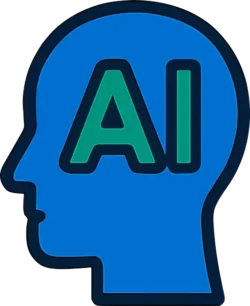
Learn the fundamentals of AI, dive into models like ChatGPT, and decode generative AI secrets to navigate the dynamic AI landscape.
- Understanding Artificial Intelligence
- Introduction to ChatGPT
- Understanding Machine Learning
Large Language Models (LLM’s) Concepts - Generative AI Concepts
- AI Ethics
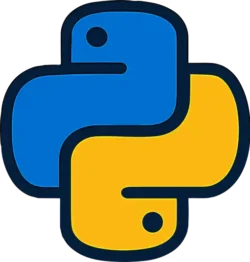
Python is a general-purpose programming language that is becoming increasingly popular for data science.
Companies worldwide are using Python to extract insights from their data and gain a competitive advantage. Unlike other Python tutorials, this course is specifically designed for data science.
In our Introduction to Python course, you will learn effective methods for storing and manipulating data, as well as useful data science tools to start conducting your own analyses.
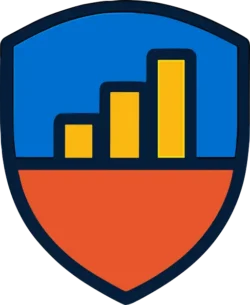
Take your python skills to the next level, you’ll learn to visualise real data using Matplotlib and explore key data structures like dictionaries and pandas DataFrames.
Discover how dictionaries provide an alternative to lists and why pandas DataFrames are essential for working with tabular data. You’ll learn to create, manipulate, and access datasets while gaining hands-on experience throughout the course.
As you progress, you’ll delve into logic, control flow, filtering, and loops to enhance decision-making and automate operations in Python. Finally, you’ll apply your new skills to hacker statistics, calculating probabilities and testing your chances of winning a bet.
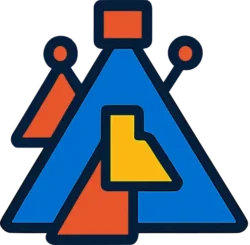
You will continue to develop more advanced Python skills.
First, you will learn about iterators—objects you have already encountered in the context of for loops. You will then explore list comprehensions, which are incredibly useful tools for data professionals and developers working with Python.

In this course you will become familiar with OpenAI and Llama3, which are two of the biggest AI systems.
In your OpenAI module you’ll create embeddings from text datasets and begin developing real-world applications.
In Llama3 you’ll learn techniques like adjusting prompts to get better responses, building conversations that remember context, and adapting outputs to fit your project’s needs – whether that means generating structured data or refining responses for clarity.
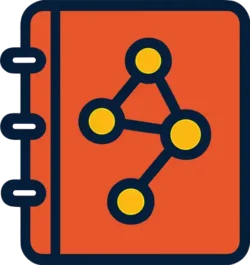
In this module you’ll be taught how to build and manage AI-powered apps.
You’ll learn how to use OpenAI’s tools (like ChatGPT) to make AI do what you want. It covers writing better AI prompts, working with AI models from Hugging Face, and making sure AI runs smoothly with LLMOps.
You’ll also learn how AI remembers things using embeddings and vector databases like Pinecone as well as learning to write better Python code to keep everything clean and efficient. By the end, you’ll know how to build, improve, and manage AI apps like a pro.

Learn how to build apps that use AI, like ChatGPT.
You’ll learn how to get AI to respond better with prompt engineering, use AI to understand text with embeddings, and manage large AI models with LLMOps.
You’ll also learn about keeping data private, working with AI tools like Hugging Face, and storing AI knowledge in vector databases like Pinecone. Benefit from hands-on projects, like getting AI to plan a trip or analyze customer reviews, so you can see how everything works in real life.
On completion, you’ll know how to use AI in apps, improve its responses, and make it work smoothly.
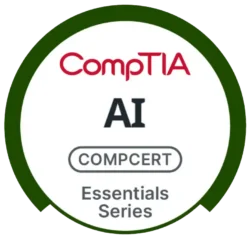
Learn how to use AI assistants like ChatGPT, Copilot, and Gemini to do your job faster and better. You’ll learn:
- How to understand generative AI and chatbots
- How to create effective prompts
- How to verify AI outputs
- How to improve AI interactions
- How to use AI responsibly with sensitive information
- How to identify practical use of AI in your current position
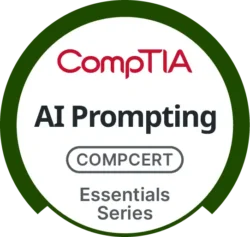
Learn hands-on skills in prompt creation, automation, and the ethical use of AI. Within this course you’ll learn:
- AI Task Identification
- Critical Evaluation
- Ethical AI Use
- Workplace Integration
- Prompt Crafting
- Moving Beyond Transactional Interactions
- Task Automation
Gain your CompTIA CompCert to prove your practical, workplace-ready AI prompting expertise.

Python is one of the most widely used programming languages globally and key for Data Analyst.
This course requires no prior coding experience; you’ll start from the basics and learn how to import, clean, manipulate, and visualise data—crucial skills for any aspiring data professional or researcher.
Your training will include interactive exercises, giving you hands-on experience with popular Python libraries such as pandas, NumPy, and Seaborn.
You’ll discover why Python is a top choice for data analysis and work with real-world datasets to enhance your data manipulation and exploratory data analysis abilities. As you progress, you’ll delve into topics like data manipulation, joining data, and key statistical skills such as hypothesis testing.
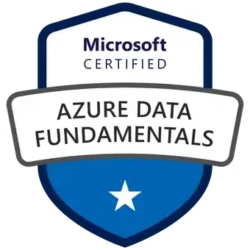
Get foundational knowledge of core data concepts and how they are implemented using Microsoft Azure services.
The exam covers topics such as relational and non-relational data, data processing, and analytics workloads.
It also introduces Azure services like Azure SQL Database, Cosmos DB, Synapse Analytics, and Databricks.

DataX gives you the skills to precisely and confidently demonstrate expertise in handling complex data sets, implementing data-driven solutions, and driving business growth through insightful data interpretation.

AI Fundamentals
Learn the fundamentals of AI, dive into models like ChatGPT, and decode generative AI secrets to navigate the dynamic AI landscape.
- Understanding Artificial Intelligence
- Introduction to ChatGPT
- Understanding Machine Learning
Large Language Models (LLM’s) Concepts - Generative AI Concepts
- AI Ethics

Introduction to Python
Python is a general-purpose programming language that is becoming increasingly popular for data science.
Companies worldwide are using Python to extract insights from their data and gain a competitive advantage. Unlike other Python tutorials, this course is specifically designed for data science.
In our Introduction to Python course, you will learn effective methods for storing and manipulating data, as well as useful data science tools to start conducting your own analyses.

Intermediate Python
Take your python skills to the next level, you’ll learn to visualise real data using Matplotlib and explore key data structures like dictionaries and pandas DataFrames.
Discover how dictionaries provide an alternative to lists and why pandas DataFrames are essential for working with tabular data. You’ll learn to create, manipulate, and access datasets while gaining hands-on experience throughout the course.
As you progress, you’ll delve into logic, control flow, filtering, and loops to enhance decision-making and automate operations in Python. Finally, you’ll apply your new skills to hacker statistics, calculating probabilities and testing your chances of winning a bet.

Python Toolbox
You will continue to develop more advanced Python skills.
First, you will learn about iterators—objects you have already encountered in the context of for loops. You will then explore list comprehensions, which are incredibly useful tools for data professionals and developers working with Python.

Working with AI Models
In this course you will become familiar with OpenAI and Llama3, which are two of the biggest AI systems.
In your OpenAI module you’ll create embeddings from text datasets and begin developing real-world applications.
In Llama3 you’ll learn techniques like adjusting prompts to get better responses, building conversations that remember context, and adapting outputs to fit your project’s needs – whether that means generating structured data or refining responses for clarity.

Associate AI Engineer for Developers
In this module you’ll be taught how to build and manage AI-powered apps.
You’ll learn how to use OpenAI’s tools (like ChatGPT) to make AI do what you want. It covers writing better AI prompts, working with AI models from Hugging Face, and making sure AI runs smoothly with LLMOps.
You’ll also learn how AI remembers things using embeddings and vector databases like Pinecone as well as learning to write better Python code to keep everything clean and efficient. By the end, you’ll know how to build, improve, and manage AI apps like a pro.

Developing AI Applications
Learn how to build apps that use AI, like ChatGPT.
You’ll learn how to get AI to respond better with prompt engineering, use AI to understand text with embeddings, and manage large AI models with LLMOps.
You’ll also learn about keeping data private, working with AI tools like Hugging Face, and storing AI knowledge in vector databases like Pinecone. Benefit from hands-on projects, like getting AI to plan a trip or analyze customer reviews, so you can see how everything works in real life.
On completion, you’ll know how to use AI in apps, improve its responses, and make it work smoothly.

CompTIA AI Essentials
Learn how to use AI assistants like ChatGPT, Copilot, and Gemini to do your job faster and better. You’ll learn:
- How to understand generative AI and chatbots
- How to create effective prompts
- How to verify AI outputs
- How to improve AI interactions
- How to use AI responsibly with sensitive information
- How to identify practical use of AI in your current position

CompTIA AI Prompting
Learn hands-on skills in prompt creation, automation, and the ethical use of AI. Within this course you’ll learn:
- AI Task Identification
- Critical Evaluation
- Ethical AI Use
- Workplace Integration
- Prompt Crafting
- Moving Beyond Transactional Interactions
- Task Automation
Gain your CompTIA CompCert to prove your practical, workplace-ready AI prompting expertise.

Azure AI Fundamentals
Python is one of the most widely used programming languages globally and key for Data Analyst.
This course requires no prior coding experience; you’ll start from the basics and learn how to import, clean, manipulate, and visualise data—crucial skills for any aspiring data professional or researcher.
Your training will include interactive exercises, giving you hands-on experience with popular Python libraries such as pandas, NumPy, and Seaborn.
You’ll discover why Python is a top choice for data analysis and work with real-world datasets to enhance your data manipulation and exploratory data analysis abilities. As you progress, you’ll delve into topics like data manipulation, joining data, and key statistical skills such as hypothesis testing.

Azure Data Fundamentals
Get foundational knowledge of core data concepts and how they are implemented using Microsoft Azure services.
The exam covers topics such as relational and non-relational data, data processing, and analytics workloads.
It also introduces Azure services like Azure SQL Database, Cosmos DB, Synapse Analytics, and Databricks.

CompTIA DataX
DataX gives you the skills to precisely and confidently demonstrate expertise in handling complex data sets, implementing data-driven solutions, and driving business growth through insightful data interpretation.
Job Guarantee Included
Get hired or receive 100% of your course fees refunded. We're committed to your success.
Our easy to follow AI Engineer career programme is designed for those at all skill levels. We provide you with 10 training modules, alongside real-world data projects, 3 official certifications and our job guarantee on completion. Whether you’re looking at a new career, pivoting your existing career this career programme will boost your skills!
Newto Training Reviews
What Our Happy Alumni Say About Us
Your Roadmap to a Rewarding AI Career
The Steps to AI Engineering Success
Follow our proven 5-step pathway to become a certified AI Engineer.
Step One
Start your studies with the AI Fundamentals within your training portal. Before then moving onto the Introduction to Python, Intermediate Python, Python Toolbox, Working with AI Models, Associate AI Engineer for Developers and Developing AI Applications.
With each of these training modules you’ll be required to undertake project work too which will help to get you job ready.
Read MoreStep Two
You’ll progress onto two CompTIA training modules, which are: CompTIA AI Essentials and CompTIA AI Prompting Essentials. These modules will provide you with digital badges.
After the CompTIA modules, next is for you to study the Microsoft Azure AI Fundamentals and then pass the examination.
Read MoreStep Three
After passing your first exam, you’ll then move onto the Azure Data Fundamentals module to study, then undertake the live lab before passing your Data Fundamentals examination.
Read MoreCareer Paths & Salary Projections
AI Product Manager
£45,000
AI Scientist
£52,000
Machine Learning Engineer
£54,000
AI Engineer
£65,000






















